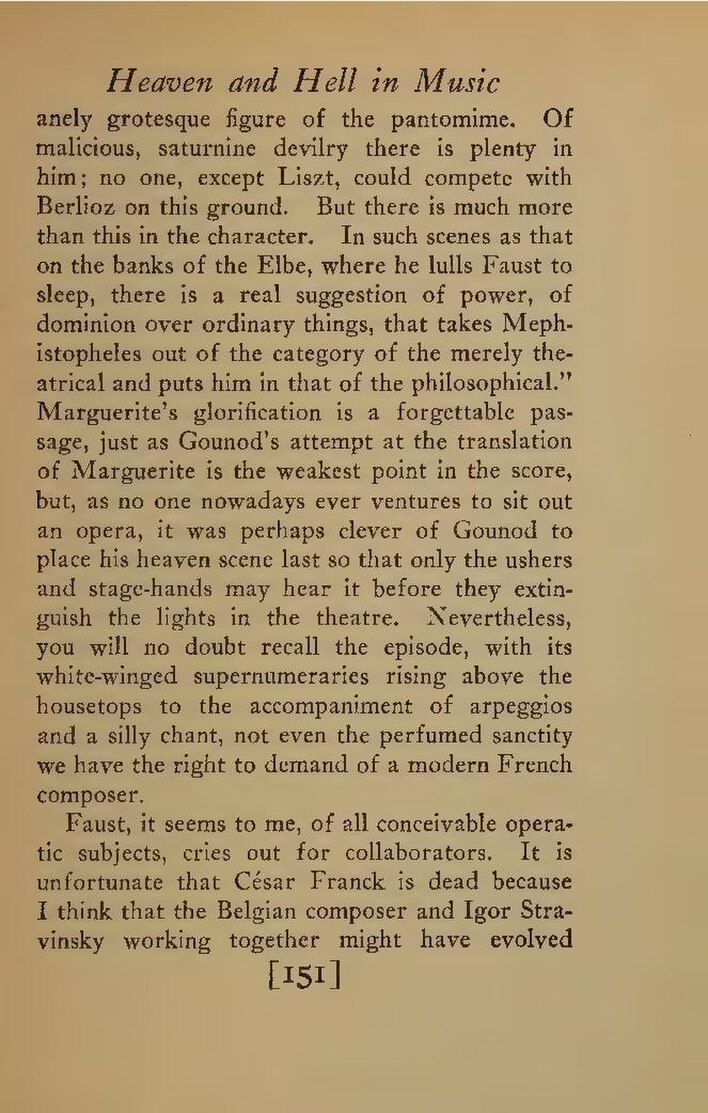anely grotesque figure of the pantomime. Of malicious, saturnine devilry there is plenty in him; no one, except Liszt, could compete with Berlioz on this ground. But there is much more than this in the character. In such scenes as that on the banks of the Elbe, where he lulls Faust to sleep, there is a real suggestion of power, of dominion over ordinary things, that takes Mephistopheles out of the category of the merely theatrical and-puts him in that of the philosophical." Marguerite's glorification is a forgettable passage, just as Gounod's attempt at the translation of Marguerite is the weakest point in the score, but, as no one nowadays ever ventures to sit out an opera, it was perhaps clever of Gounod to place his heaven scene last so that only the ushers and stage-hands may hear it before they extinguish the lights in the theatre. Nevertheless, you will no doubt recall the episode, with its white-winged supernumeraries rising above the housetops to the accompaniment of arpeggios and a silly chant, not even the perfumed sanctity we have the right to demand of a modern French composer.
Faust, it seems to me, of all conceivable operatic subjects, cries out for collaborators. It is unfortunate that César Franck is dead because I think that the Belgian composer and Igor Stravinsky working together might have evolved
